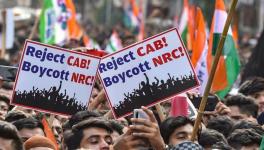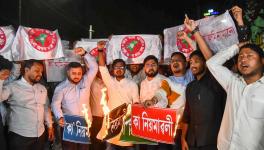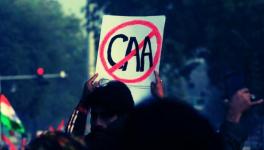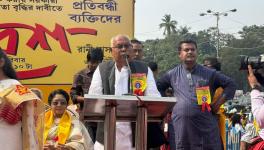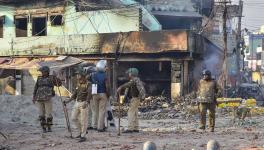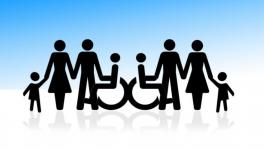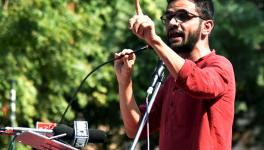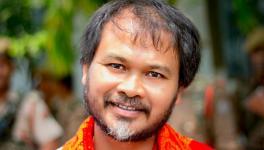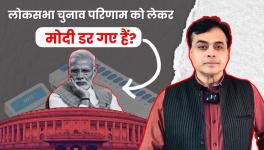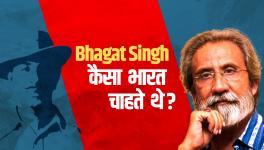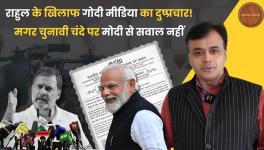Why Disabled Persons in India Are Opposing CAA-NPR-NRC
Pune: Disabled persons and organisations working for their rights are opposing the controversial Citizenship Amendment Act (CAA), National Register of Citizens (NRC) and National Population Register (NPR), terming these as discriminatory, as several of them lack documents since many of them are abandoned by parents. Also, those with impaired vision or physical disability are likely to have mismatch in thumbprints and eye scans.
Over a dozen disability rights organisations from across the country have, therefore, issued a joint statement opposing CAA-NCR-NPR.
As per the 2011 census, 2.1 crore people are disabled in India, which is 2.1% of the total population then. However, only five types of disabilities -- visual, hearing, speech, movement and mental – have been taken into account in the 2011 census. As per the Census, 1.21 crore or almost 50 % of the disabled persons are illiterate, and out of the remaining 1.4 crore persons, only 12 lakh are graduates or above. Overall, 42% the disabled re dependants while 28% of them are students.
However according to World Bank, the number of disabled persons in India is much higher, between four and eight crore.
Besides, after Parliamentary consent to the Rights of Persons with Disablities Act, 2016, India has added 14 disabilities, such as autism, Parkinsons, acid attack victims among others into the earlier seven categories, after long-standing demands from activists. This means that the number of disabled is now much higher than in the 2011 Census.
“We need to understand that CAA-NRC-NPR are intricately connected with each other and the NPR will be feeding into the development of NRC,” Muralidharan, general secretary of National Platform for the Rights of Disabled, told NewsClick.
Pointing out unfairness of the process, Muralidharan said: “Questions related to parents’ date and place of birth have been added in the NPR. Many disabled are abandoned, dislodged from their homes and are homeless. They stay in segregated colonies or in specail institutions and will not be able provide many details sought in the NPR questionnaire. It will be close to impossible for them to provide documents.”
Narrating his woes, Nitin Shewale, a second year Master’s student in politics from Abasaheb Garware College, Pune, and a civil services aspirant, who is fully blind, said: “I have an Aadhar card and but when I go to buy a sim card for my mobile phone, my vision and thumbprints don’t match due to problems in my eyes. So, they don’t give me a sim card. I cannot take an electricity connection in my name due to the same reason.”
The statement issued underlines this issue. It says: “We are worried, as after the enumeration, the information will be crosschecked with the Unique Identification Authority of India (UIDAI) to verify the individual’s biometrics. Experience shows that the problem of mismatch of Aadhar-generated biometrics has deprived lakhs of poor and disabled of their entitlements. Additionally, lakhs of disabled have not been able to enrol for Aadhar due to a variety of problems. This will happen again for NPR and NRC.”
S Namburajan, general secretary, Tamil Nadu Association for the Right of all Types of Differently Abled and Caregivers, said: “We are also concerned that after Aadhaar verification, once the data is entered into the Local Population Register, and the Local Registrar marks anyone of us as “doubtful” for any reason, we will be forced to undertake umpteen trips to the offices concerned (which will doubtlessly be inaccessible and pose multiple hurdles) with proof of citizenship. Many disabled people do not even have birth certificates, leave alone the details of previous generations.”
A physically handicapped person, who is pursuing a doctorate from Savitribai Phule Pune University, is worried for the same reason, as he is apprehensive about the umpteen visits to government offices, where both staff and infrastructure are non-disabled friendly.
Disability rights activists say that no document that proves identity—birth certificate, Aadhaar, Voter ID, PAN card, or passport -- was by itself accepted as proof of citizenship. To top it, spelling errors and mismatch also leads to problems.
“We have experienced severe difficulties and insurmountable hurdles even in procuring disability certificates. Procuring additional certificates in an entirely disabled unfriendly environment means putting us to immense hardships and mental trauma,” he said.
Pradip More, 31, an activist in Pune who works for deaf people through the State Level Association of the Deaf, Maharashtra, said, “Deaf people face problems while communicating with others. Most of them are illiterate and from low-income groups who don’t understand CAA or NCR or NPR. How will they go through this process?”
Activists are also worried over the serious and long-term mental health impact that the process of CAA-NPR-NRC is already having and is likely to have, on all residents of India.
Instead of asking us to go through this turmoil, the government should create jobs for us so that we do not have to depend on others, added Shewale.
The writer is an independent journalist based in Pune.
Get the latest reports & analysis with people's perspective on Protests, movements & deep analytical videos, discussions of the current affairs in your Telegram app. Subscribe to NewsClick's Telegram channel & get Real-Time updates on stories, as they get published on our website.









